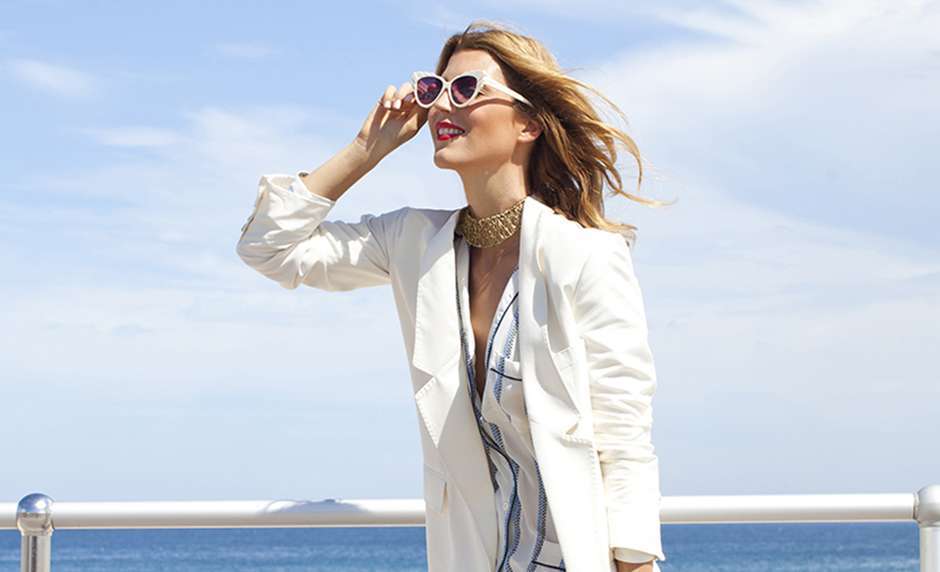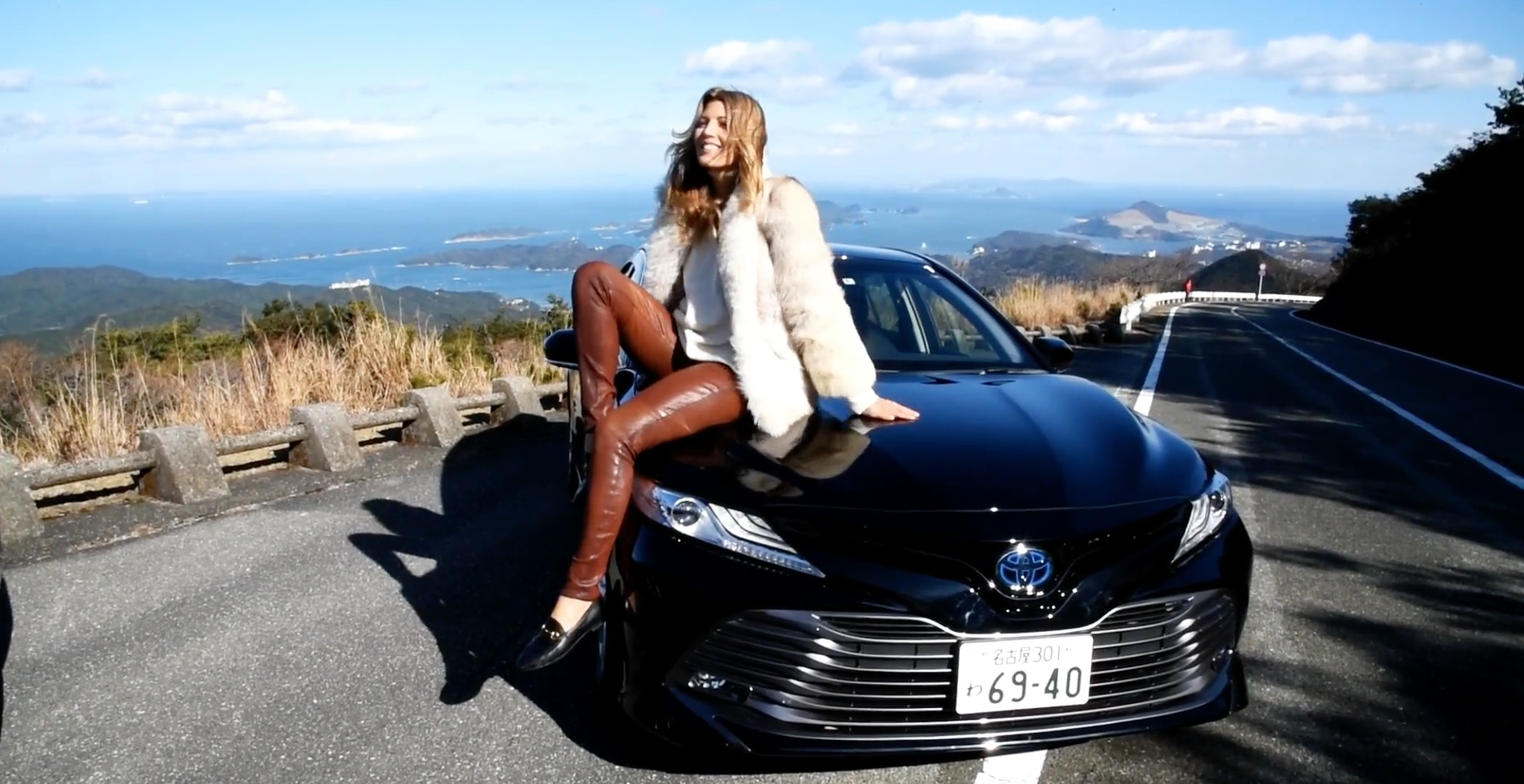 When the topic turned to fashion reform on a podcast I was on back in February, I expressed a hope for multi-faceted change—it seemed like every single cog of humanity’s activity needed to be lifted out, re-examined, simplified and restarted to ensure our survival, not only the sartorial machine that is the world’s third biggest polluter.
When the topic turned to fashion reform on a podcast I was on back in February, I expressed a hope for multi-faceted change—it seemed like every single cog of humanity’s activity needed to be lifted out, re-examined, simplified and restarted to ensure our survival, not only the sartorial machine that is the world’s third biggest polluter.
These thoughts were merely an echo among the rising chorus of society that deep down knew it was no longer 1999; the party was over—we don’t have four to six planets on hand to satiate the Western addiction to consumerism.
Little did I know that Covid 19 was already spreading around the globe, soon to shut down the whole world.
This was not the way I imagined change would come. As visions of overwhelmed hospitals, mass graves and dying people filled the news, I broke down, spending an unhealthy amount of time each day consuming red wine and chocolate, wired on a 24/7 coronavirus news loop in an attempt to control rising panic.
Soon, I realised that this anxiety was tightly knitted into other traumatic times in my life, namely the experience of living through the Yugoslav War and New York during the September 11 terrorist attack. Remembering gruesome scenes and media headlines highlighted how my identity had been shaped anew each time by adversity and stress. Taking a bird’s-eye view on history, I saw myself become a little wiser and more expansive because of those difficult times.
I don’t want to romanticise trauma, I believe humans can learn without it, but it is equally true to say that pain shocks us into new realisations and points of view. Our survival then, like Charles Darwin would imply, lies not in what happened to us but in how well we’re able to catalogue our experience and adapt to a changing landscape.
At 14, the war gave me a deep understanding of problems with xenophobia, division and hatred, while at 21, American media crying out for conflict in Iraq based on an unfounded fear of weapons of mass destruction became a perfect lesson on the power of spin doctrine. Losing my life to a bomb or terrorist attack back then felt like palpable possibilities, so this situation was nothing new, I reasoned with myself, just another chance to practice acceptance for the only unavoidable variables in life: change and death.
Passing over is something we in Western societies have overwhelming fear for, yet I remember when my grandfather, a man who lost his eye fighting the Nazis and later enjoyed a daily trip to produce markets so he could cook up feasts, had a stroke and became paralysed down one side. He said to me: “Tanja, live your life with full lungs and don’t fear death. We will all die one day but the important thing is that we really lived and loved. I don’t care about life anymore, this existence of counting lace on curtains bores me.” He died not long after, stifled by the loss of the sort of life he relished. As sad as I was to no longer have him around, I admired the way he chose to let go without being afraid of the unknown.
The Dalai Lama once said: “If a problem is fixable, if a situation is such that you can do something about it, then there is no need to worry. If it’s not fixable, then there is no help in worrying.”
It was clear from data that this virus prays mostly on the vulnerable and the sick, so out went the coping mechanisms of alcohol, sweets and late night Netflix binges and in came a routine of meditation, journaling, walking, healthy eating and vitamins to strengthen my immune system. I spent years learning about food as medicine to cure my autoimmune issues and became well-versed in mental self-care after a particularly toxic abusive relationship sent me to a year’s worth of therapy in 2019, yet implementing a structure of discipline under a cloud of worldwide health trauma was proving to be difficult. The human body likes to return to the cosiness of its preferred coping mechanisms. I went for the 80/20 approach to minimise chances of a coup by my inner rebel, immersing myself in books and podcasts on various topics to avoid mindless news scrolling and it’s disastrous effect on my nervous system.
One day, I listened to Sean M. Carroll, a theoretical physicist who specialises in quantum mechanics, talk to a guest on his podcast about the upcoming utopia and automation age, courtesy of new technology. Are we about to witness the crowning of Artificial Intelligence through the internet’s birth canal, a world more sci- fi and futuristic than anything I had imagined as a starry-eyed 13-year-old Arthur C. Clarke fan? We now stand on the precipice of new age, just as we had done at the start of the Industrial Revolution but most of us aren’t aware of how our lives may change as a result of this shift.
This new lifestyle that non-essential workers found ourselves in during lockdown may well be the beginning of a trend, one in which robots increasingly take on more tasks as humans become less needed for menial jobs, as well as traditionally high paying ones such as banking and law. Discounting the concern of it all turning awry (Terminator style!) once AI reaches singularity—killer hornets destroying all the pollinating bees, the economic downturn morphing into a devastating depression, a deadlier second Covid-19 wave or an unlikely alien invasion (the Pentagon did release that UFO footage, nothing can surprise me this year!)—humanity may eventually find itself with more leisure time than ever before in history, with universal income forming the backbone of humanity’s sustenance.
Creative people are to benefit the most from this switch as we collectively still prefer a living mind and face behind music, dance, writing, art and design.
Shifting focus out of chaos into future possibilities triggered a life review, one lived in the fashion industry for the last 25 years. The murmur of voices driving for change in my field had grown to a choir even before the quarantine, but the boat had now sped into uncharted waters. Writing a sustainability article for Vogue a few years ago gave me insight into the pollution fashion was guilty of, fuelling a change in the way I lived, bought and perceived style, yet this virus sobered my industry’s understanding further. From bringing attention to unpaid workers in third world countries, to shining a light on carbon used by air travel in fashion months and the mindlessness of a business model which expects endless projected profit and the resulting demand on designers to produce four or more collections per year—none of this is necessary. And, indeed, it is unethical to continue pushing an outdated paradigm of perceived success at the expense of the planet.
You won’t find me writing an obituary for fashion because I believe it is so deeply part of human culture that it’s indestructible—beauty and ingenuity in how we dress and adorn ourselves will always be a necessary part of humanity’s quest for individuality. Fashion going seasonless and renewable will spark not only enterprise but inventiveness, revolutionising the business as we know it. As we turn into this brave new decade pursued by a shark of a looming downturn followed by a mega shark that is global warming, I am not quite sure why I am this optimistic that humanity even stands a shot at overcoming our problems. Call me crazy, but turning 40 in quarantine has really made me miss and appreciate the roar of crowds, sweaty nightclubs, bear hugs and cramped airplanes.
Some experts say that this is our new normal, but virus crises were followed by feasts and orgies in ancient Rome, the bubonic plague made way for the Renaissance and the Spanish Flu turned into the roaring 1920s. Perhaps humanity thrives on adversity, and this will be our finest moment of truth, change and advancement?
Doing shadow work last year made me acutely aware of the pretty mask I wore most of my life, the many onion layers of trauma that my shame had subjugated into darkness underneath it. Whenever someone asked me how difficult times felt, I’d deflect with jokes because allowing the pain to surface meant my world really wasn’t as perfect as I had pretended. By creating an idealised version of my history, I banished pain into hiding where I thought it couldn’t hurt me. What I learnt is that allowing myself to feel everything brought forgotten memories up into the light for sorting, transforming stuck pain into wisdom. The empathy I developed for myself became the feeling of expansiveness with which I could understand the world around me with more compassion.
Perhaps then, this apocalypse is exactly what the Greeks mean by the word: an unveiling of things previously unknown? Possibly our world isn’t getting worse, it’s only becoming more transparent as truth becomes evident in the brightness of conscious attention. Before lockdown, the planet whirred so fast, noise drowning out all that festered, busyness creating a smokescreen for destruction. Time out made us all reflect on existential suffering we preferred to ignore.
No healing journey is a steady road upward, it’s instead a tangled mess of confusion and enlightenment in increments of one step forward, two steps back. Humanity has developed a mechanism of coping with pain that is anchored in the limbic response of numbness, avoid, fight or flight, feed or fornicate. Our unexamined trauma prevents us from operating in our higher reasoning brain. We treat the planet how we treat ourselves, causing havoc and destruction without being satiated or grateful, inflicting upon it the same illness we have—the inability to be present, examine ourselves and take personal responsibility for our healing.
Confronting issues with open eyes is needed before we can move into an integrated future but that won’t ever happen if we choose to deny their very existence or quell the voices of people brave enough to speak up.
Change lies within us confronting our own darkness, examining our own beliefs and their sources before we can deeply understand issues collectively and pivot away from this path of annihilation. Maybe I’m deluded about the Homo sapien species, but I cannot shake a wild hopefulness that a time of new possibility is coming.
I’ll always be the girl who pretends she is a character in Dynasty, turning any occasion into a runway show, but I think I’ll take a chance into the unknown now and maybe start a podcast on something rather un-fashion like. I’m sure grandpa would love to see me try, even if I fall flat on my face
This story originally appeared on Vogue.com.au here!



© Copyright 2024
My Empirical Life - All Rights Reserved.
Site by KORE